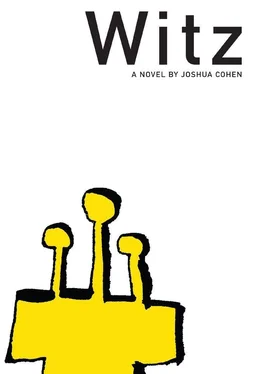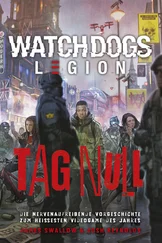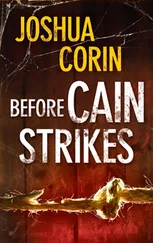Assistants interrupt the reverie, defile the idyll, at every hour hauling in more hulking tomes more and more esoteric, forever falling apart, to be perused with fingers laden with shvitz, with their toes and their eyes even through the glasses of the nose and the hands that mate and serve together to magnify, pages smudged with excited froth, with nicotinal saliva, with languages like the irretrievable People, dead and gone: some scholars sleeping already, others holding their tomes upsidedown, unsure how to right an alphabet, turn the page, turn the page, turn the, answer’s to be found on the page after the last; more and more books by the crateful daily delivered, old things mostly, out of prints, limited runs regressed from private libraries and archives, flownover from attics, excavated from basements and the least accessible stacks of permanent collections; they’re turning pages pulverulent, impairing visibility, aggravating with malicious intent the nose and throat; sifting through leaves, unslit of the unreadable unread for some idea, any, of how to begin — only to end, it’s been said, with the identification of those popularly referred to as the Nus, or Neues, depending on who you talked to and on what day. They the assembled would select a people, and only those people, whose souls would redeem the world — with no messy conversion, no choice on the part of the chosen allowed; this to be a wholesale redacting, remaking, revision, preferable, it’s been suggested, to any proposed wandering around the world, a process expensive, forever long, in search of someone to blame, anyone futzed enough in the head, willing to be scaped and so, martyred — a hook for their wilting felt hats, their slickers drenched through; though the sun’s out, winter wounds the glass in raging lashes.
For a moon, all that can be seen in the Library — since shut to the edification of the general public, who anyway might’ve long forgotten where it is and when it once had been opened — are these improbably tiny noses peeking out over extensive volumes bound in leather as the scholars are bound to their chairs: becoming merged to their chairs, fixedly fused, gaseously suctioned to seats, forcing them to a restriction of motion, their movement accomplished only by the manipulation of the hands placed under the seat of the seat; wanting to leave for a moment of air or peace, for light when the sun darkened down they’d thrust themselves forward at the ache of their wrists, heave from the hurl of their spindly arms soon distended, and so the scholars they’d eventually push paper and themselves from their palms upon the floor’s splintered tiles, letting loose the occasional screeched, creakcracking fall, sneeze, cough cough cough as if only to assure themselves and their others that they’re, sad to say, still alive.
Sequestered in this Library, remanded to what’s become by January’s close an impossible task, having been less asked than ordered to find the solution most final to a question that can’t even be asked: not to confab, or to approach the presence of truth by consensus, but to vote, or to find, to determine, to order — to vet all potentials, nominees for salvation, then to ensure a future by publicly naming such resurrected embodiments of the cold, the dead, and their past, to identify inheritors, immediate kin. How to do this is work, is research, is falsity, lies — a salvation itself, if lesser, more personal, adrift amid earthly time: spending days as vast as the sky poring over pages and charts, diagrams, lineages and the annals of annals, parchments and hides, every species of document that had ever occurred to the most human fear of being forgotten, the ambition that is immortality to be discerned amid memorized numbers and memorious dates that live lives independent of us, to be retrieved from between our flesh and bone covers that are, themselves, oblivious. In the end, though, it’s perfect, a total success — in that it’s worthless; as every hint leads to a prophecy that foretells a clue, yet another falsity to be followed through to its conclusion, which is only real insomuch as it’s nothing and nowhere.
East of our maps, Hic sunt serpentes …Here There Be Serpents coiled into currents, baring fangs of wake, venomous rips whirling around the throat of our Island, to skirring, to choke. Here’s a small island just off the coast of another small island that itself is just off the coast of an enormous country known as America — situated in space as in time just opposite the enormous green goddess with that torch of hers and that book, too, from whose pages our maps have been ripped. Manhattan’s a mammoth compared with this neighboring clod, this island we call it though it’s barely an isle, more like a breathless speck split nearly in two by a sip of water, into tablets, with a sullied tongue pronouncing profaned names, forked baybrackish, sundered churning, churlish. A slip, it once had accommodated the docking of vessels, ships like the Vaterland, the mighty Leviathan, the stalwart Amsterdam, and the Westerland, the Gellert, the Thingvalla, the Mohawk, the entire Moravia fleet out of Hamburg, the Norddeutscher Lloyd’s Kronzprinz Friedrich Wilhelm, the SS Whatever on down the wavylined, watermarked Manifest of Manifests, all of them descendants of the colonizing Saint Catherine (patroness saint of libraries), which steamed in the very first stock: immigrants who’d intended only to arrive, up top; down below, emigrants who’d intended only to leave; up top, immigrants who’d thought only of the future; down below, emigrants who’d thought only of the past…immigrants who’d honored opportunity, emigrants who’d prayed their lives away to the historical failure of gods ever older and dumber — arriving all day and through the night, too, in these ships and impromptu brigs and barques, their steerage made democratic meat, shipments if only for the slaughter that is the new, always, the lavish luxurious quarantine that is this particular exile. An enfranchised garage, a Cadillac parked deep in the crotch. Judge not lest, though — after all, they knew their mythologies, their archetypes, the windy symbols and the manifold, though onesunned, doldrums of fate: having crossed the river that is the ocean to die here, they’d lacked only the coins to blind their eyes, which would undoubtedly be earned in due time — found on a sidewalk, in a sewer, under the tongue of a wifemouth, in the pocket of her professional “father.”
A slip iced, frozen into a field, landscaped with salt and sand into a neat square that separates the Great Hall from the squat ruinous barracks beyond — now housing the surviving firstborns, all of them male, menschs ingathered from all the world over to attain the protection of this primal estate: the Hospital rustjointed, the Commissary burntover; the tumuli of outlying buildings intended in their conversion for the forgiveness of staff, the insensibility of freight, crammed atop this fill like centuries of graves of centuries, necropolis rocks atop stones atop trash cramped atop the swell of this speckle, an isle sliced down the middle as if gutted for hidden treasure, which is what — only water, frozen below the lives stilled, the shocked hearts and minds of those latest arrivals still being received for the processing. Huddled hassles burning to earn free, tempesttossed Lazaruses, poor, not for long, tired, they’re always, regime export whored over to this teeming shore for a purgatory of examinations, questions, questions, sessioning questions, exams, What’s your name, your date and place of birth, have you been promised a job here, have you been promised a husband here, what do you do, are you an anarchist? these days, how can you not be; do you happen to believe in a God…followed up by a host of hearings, appeals, held in the presence of interpreters American now for maybe a week, directing their pleas at the Officers who seemed themselves gods but not to be believed in only to fear, stationed chalkfingered, busily moustachioed at the door — which is not golden gleaming but whitewashed; its shine, it’s said, comes off with blood.
Читать дальше












